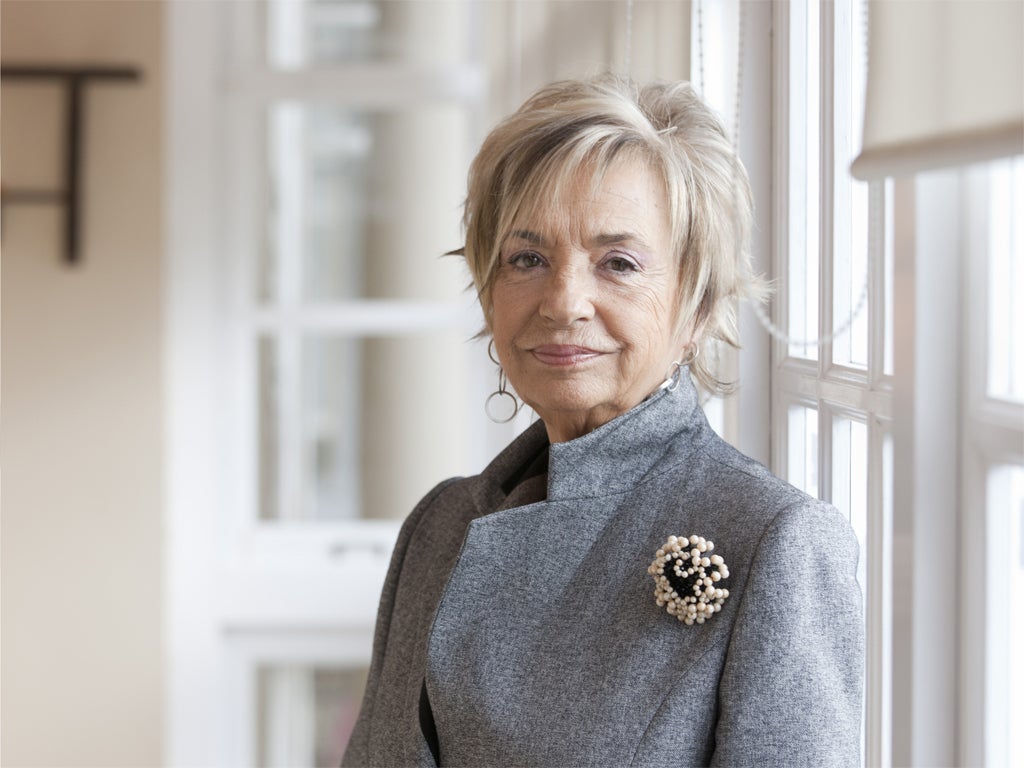World’s ‘wealthiest self-made woman’ and co-founder of Zara dies of stroke at 69
Zara boss quit school penniless at 11 but worked her way to a £4bn fortune

Your support helps us to tell the story
From reproductive rights to climate change to Big Tech, The Independent is on the ground when the story is developing. Whether it's investigating the financials of Elon Musk's pro-Trump PAC or producing our latest documentary, 'The A Word', which shines a light on the American women fighting for reproductive rights, we know how important it is to parse out the facts from the messaging.
At such a critical moment in US history, we need reporters on the ground. Your donation allows us to keep sending journalists to speak to both sides of the story.
The Independent is trusted by Americans across the entire political spectrum. And unlike many other quality news outlets, we choose not to lock Americans out of our reporting and analysis with paywalls. We believe quality journalism should be available to everyone, paid for by those who can afford it.
Your support makes all the difference.Rosalía Mera, co-founder of the high street fashion chain Zara and the “wealthiest self-made woman on the planet” according to Forbes magazine, has died aged 69.
Ms Mera’s life was a classic rags-to-riches story. Her family were so poor she had to leave school at 11 to work as a seamstress, but when she died of a stroke on Thursday night while holidaying with her daughter Sandra in Menorca, she was Spain’s richest woman.
Her fortune was estimated at €4.7bn (£4bn), second only in Spain to that of her ex-husband, Amancio Ortega, with whom she began her entrepreneurial career by making dressing gowns and lingerie in their living room. They eventually founded Inditex, the parent company of fashion retailers Zara, Massimo Dutti and Bershka and now worth an estimated €15.9bn. Forbes ranked Ms Mera as the 66th most influential woman in the world.
She never forgot her working-class roots, however, and raised many eyebrows when she often described herself as left-wing. “You can’t be otherwise when you come from where I do,” she said in a television interview last year.
In 2011 she declared herself part of the “indignados”, a protest movement against perceived corruption in Spain’s political and business leaders. “Cuts in health and education do society no favours. You can’t take the easy way out and cut from the bottom,” she said at the time.
When she separated from Mr Ortega in 1986, Ms Mera left the day-to-day running of her business to focus on charity work, although she retained a 7 per cent share in the fast-growing firm and stayed on its board until 2004.
In her later years she gave herself to philanthropy and presided over her Paideia Foundation, which promotes social studies and helps disabled people like her son Marcos, who has cerebral palsy.
Born in 1944 during the poverty and oppression which followed Spain’s Civil War, Ms Mera was brought up on the back streets of the north-western port city of La Coruña, where her father worked for an electricity company. Her illiterate mother ran a butcher’s shop. “She couldn’t read the scales. We all had to help her,” Ms Mera recalled.
At an early age, Ms Mera was sent away from her family’s cramped flat to live with an aunt. After leaving school, she worked as a shop assistant, but realised she had reached a dead end in a small family business where positions were earmarked for the owner’s children.
When she was 19, she decided to strike out on her own with Amancio Ortega, who is today the world’s third-richest man. Back then, he too was a shop assistant.
At first they tried making baby clothes with a handful of relatives and friends, but they had better luck when they switched to gaudy padded nightgowns made out of synthetic materials. By 1975, they had opened their first Zara shop in La Coruña. Now, the Inditex empire has more than 6,000 outlets across the world.
Ms Mera defended herself against charges that her views were at odds with her vast wealth by saying she could afford to be frank in her old age, and had done what she could to help others once she had made her fortune. She claimed her success was ultimately down to determination and hard work.
“I’ve always fought for justice and equal opportunities, so that others can have opportunities,” she said.
Join our commenting forum
Join thought-provoking conversations, follow other Independent readers and see their replies
Comments